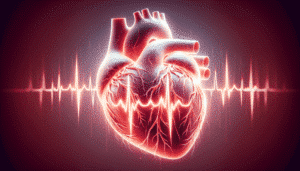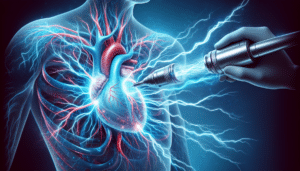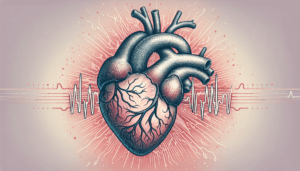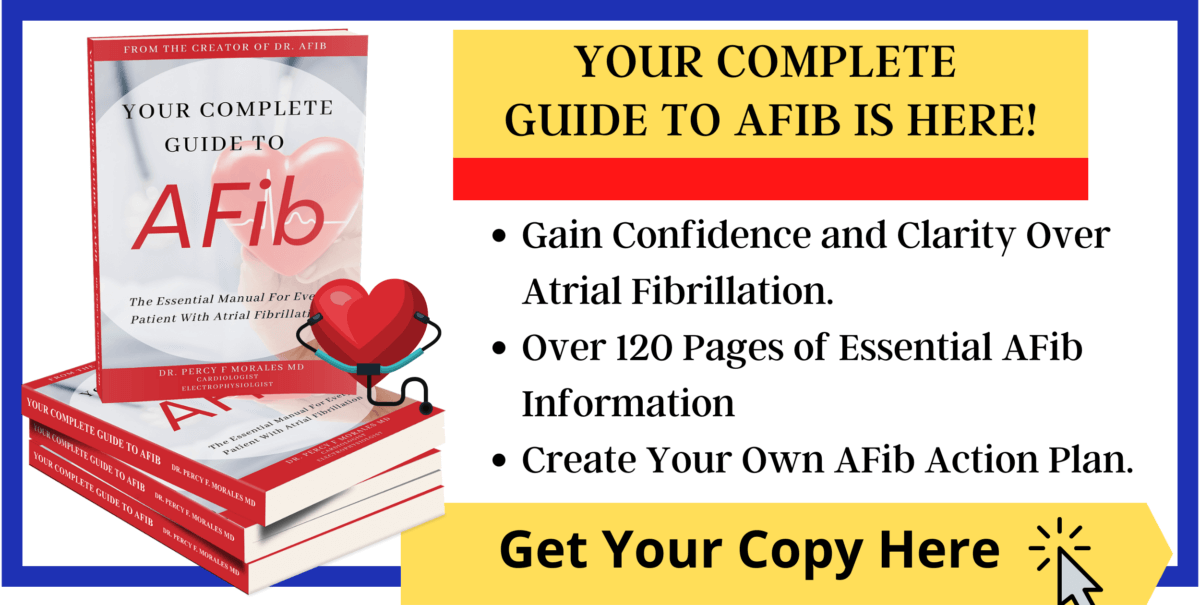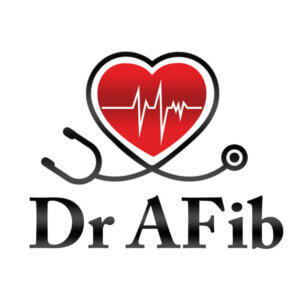Experiencing heart palpitations can be unnerving. You’re likely seeking immediate steps on how to stop heart palpitations quickly and effectively. Rest assured, palpitations are common, and many can be managed at home. This article outlines clear and straightforward strategies to help you calm your heartbeat and offers insight into when medical advice is recommended.
Key Takeaways
-
Heart palpitations are common sensations where the heart flutters, skips a beat, or pounds, often triggered by stress, anxiety, or stimulants like caffeine and nicotine.
-
Lifestyle changes such as stress management, reducing intake of stimulants, maintaining regular exercise, and adhering to a healthy diet can prevent heart palpitations and promote overall cardiovascular health.
-
While most heart palpitations are harmless, it’s important to seek medical help if they’re accompanied by symptoms like chest pain, shortness of breath, dizziness, or if you have a history of heart disease.
Understanding Heart Palpitations
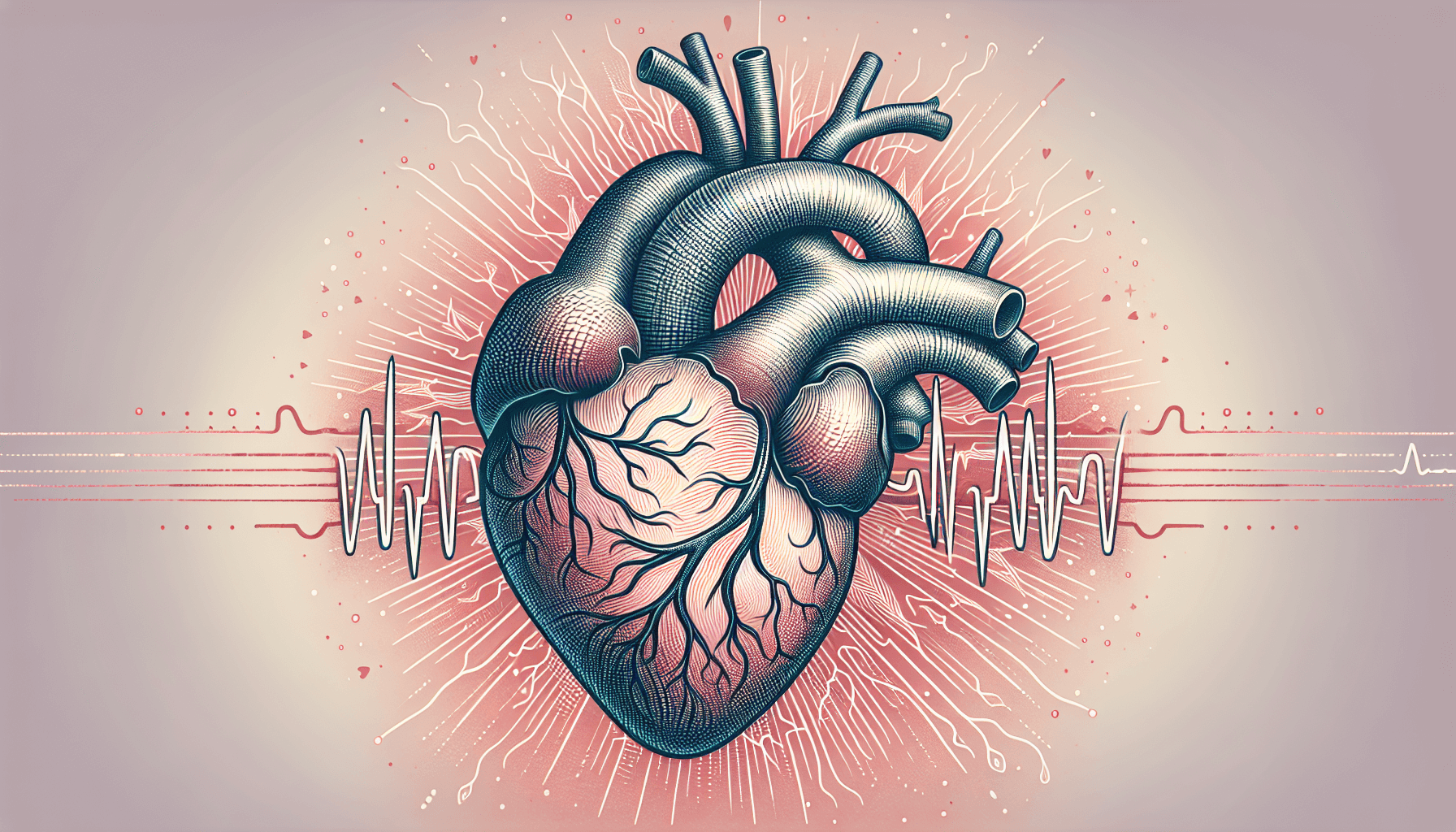
Heart palpitations are those unique sensations where your heart seems to skip a beat, flutter, or pound with an intensity that you can’t ignore. While they might take you by surprise, palpitations are often a harmless hiccup in your heart’s normal rhythm. Imagine your heart as a well-conducted orchestra; occasionally, a single note strays from the melody—a palpitation. These sensations can occur in the chest, throat, or neck, making you acutely aware of your heartbeat.
Despite the discomfort, one of the keys to managing heart palpitations is not to focus on them too much. Much like a hiccup, the more attention you pay to it, the more persistent it becomes. It’s a delicate balance of being aware and taking proactive steps without dwelling on each beat.
What are the causes of these palpitations, and what do they feel like?
Common triggers
The culprits behind heart palpitations are varied, ranging from emotional states to dietary choices. Some common instigators include:
-
Stress and anxiety, which act as emotional triggers that disrupt your natural heartbeat
-
Stimulants such as caffeine and nicotine, which can jolt your heart into an irregular pace
-
Even a piece of chocolate, with its hidden caffeine content, might be enough to trigger palpitations for some
It’s important to be aware of these triggers and make lifestyle choices that promote a healthy heart.
Common triggers for heart palpitations include:
-
Caffeine
-
Alcohol
-
Stress
-
Lack of sleep
-
Dehydration
-
Over-the-counter medications
-
Illicit drugs
-
Illness
Steering clear of tobacco products is a significant step toward reducing the frequency of these unexpected heart flutters. Understanding these triggers is the first step toward preventing palpitations, but recognizing the symptoms is equally important in managing your heart health.
Symptoms of heart palpitations and abnormal heart rhythm
When heart palpitations strike, they bring along a suite of sensations that are hard to ignore. You might feel your heart beating too hard or too fast, skipping a beat, or fluttering—almost as if it’s staging a protest against its usual rhythm. These symptoms can manifest in your chest, but don’t be surprised if you also notice them in your throat or neck, adding to the peculiarity of the experience.
From a heart that seems to flip or pound to moments where it feels like it’s fluttering rapidly or experiencing skipped beats, the sensations of palpitations are as varied as their triggers. Knowing what to expect can help you to remain calm and collected during these episodes.
We will now examine how modifying specific lifestyle habits can assist in preventing these palpitations.
Lifestyle Changes to Prevent Palpitations

The rhythm of your life can influence the rhythm of your heart. Modifying certain aspects of your lifestyle can be a game-changer in preventing heart palpitations. It’s about creating an environment where your heart can maintain its natural beat without unnecessary interruptions. These adjustments can range from:
-
Managing stress levels
-
Being mindful of your intake of certain substances
-
Committing to physical activity
What is the precise process for implementing such changes? It starts with understanding the role of stress and anxiety, the impact of stimulants, and the importance of exercise and a balanced diet in the grand scheme of cardiovascular health. Each of these factors can be fine-tuned to support a stable heart rhythm and reduce the frequency of palpitations.
Reducing stress and anxiety through deep breathing
The hustle and bustle of modern life often come hand-in-hand with stress and anxiety. These emotional states can act as a fast track to heart palpitations. To counter this, practices that elicit the relaxation response—a state of deep rest—can be transformative. Imagine your body shifting gears from the ‘fight or flight’ mode to a serene and restful state. Techniques such as deep breathing exercises, guided imagery, and mindfulness meditation can not only promote this shift but can also quickly calm heart palpitations when they arise.
Adopting these relaxation methods can make a remarkable difference. By dedicating time to breath focus, body scans, or even repetitive prayer, you invite calmness into your life, reducing the likelihood of experiencing those unsettling heart flutters. Managing anxiety is not just about feeling better mentally; it’s also about taking care of your heart and preventing palpitations.
Limiting stimulants
Stimulants are like a jolt of electricity to the heart. Substances such as caffeine, found in your morning coffee or certain energy drinks, can trigger an abnormal heart rhythm. The same goes for nicotine, a common ingredient in tobacco products. To reduce the frequency of heart palpitations, it’s wise to cut back on these stimulants. It’s not about eliminating them completely but rather about recognizing their impact on your heart and moderating your intake.
Excessive alcohol consumption is another factor that can cause palpitations. The key is moderation. By keeping an eye on your consumption of caffeinated beverages, and maybe swapping out that extra cup of coffee for a glass of water, you can make strides in preventing palpitations.
Regular exercise and healthy diet
Maintaining an active lifestyle and a balanced diet are more than just popular terms—they are key components in preserving a healthy heart rhythm. Engaging in regular aerobic exercises like jogging, swimming, or cycling, coupled with resistance training, can strengthen your cardiovascular system and help prevent palpitations. It’s about finding a routine that works for you and sticking to it, ensuring your heart gets the workout it needs to beat steadily.
As you plan your meals, consider adding a variety of colorful foods. A diet rich in fruits and vegetables provides essential electrolytes, such as potassium and magensium, which are crucial for heart rhythm function. These nutrients help manage not only palpitations but also contribute to overall cardiovascular health. So, fill your meals with a rainbow of natural foods and watch as your heart thanks you by maintaining its natural, steady rhythm.
Natural Remedies for Managing Heart Palpitations

In the quest to calm a fluttering heart, nature might hold some of the answers. There’s a plethora of natural remedies that can help manage heart palpitations, from staying hydrated to exploring the world of herbal supplements and alternative therapies like yoga and tai chi. These remedies can be a comforting complement to lifestyle changes, offering additional support for your heart’s rhythm.
While some of these techniques may appear unconventional, such as vagal maneuvers that stimulate the vagus nerve to ease palpitations, it’s crucial to consult with a healthcare provider before trying them for safety purposes. Let’s now examine in detail how these natural remedies can contribute to your cardiovascular health.
Hydration
Water may be the simplest yet most effective remedy for managing heart palpitations. Dehydration can cause your heart to work harder to circulate blood, potentially leading to an elevated heart rate and palpitations. By ensuring you’re well-hydrated, you help your heart maintain a consistent and efficient beat. Drinking water can quickly alleviate palpitations, especially those triggered by dehydration.
Subtle shifts in your daily routine, like carrying a water bottle with you and opting for water over caffeinated or alcoholic beverages, can have a significant impact on your high blood pressure. Adequate hydration helps to keep your blood consistency balanced, preventing it from becoming too thick and taxing your heart, which can contribute to cardiovascular disease. Additionally, staying hydrated can promote regular bowel movement, contributing to overall health.
So, make water your companion, and your heart will likely beat a little easier.
Herbal supplements
Nature’s pharmacy offers an array of options for those seeking heart health support. Some natural supplements that may help manage your heart’s rhythm include:
-
Hawthorn berry extract: has a history of use in traditional Chinese medicine for cardiovascular health and may help decrease heart palpitations in some individuals
-
Coenzyme Q10: supports heart health and helps maintain normal heart rhythm
-
Omega-3 fatty acids: found in fish oil, may help reduce the risk of heart disease and support overall heart health
-
Magnesium: magnesium supplements have been very beneficial for many patients with palpitations.
These natural supplements can be a gentle aid in managing your heart’s rhythm.
However, it’s vital to approach herbal supplements with care and seek advice from a healthcare professional before starting any new regimen. The right supplement could be a beneficial ally in your heart health arsenal, but only when used correctly and safely.
Alternative therapies
Sometimes, the antidote to a racing heart lies in the calm, measured movements of alternative therapies. Yoga, tai chi, and qigong are more than just physical exercises; they are meditative practices that can help reduce stress and, in turn, decrease the occurrences of heart palpitations. These therapies combine rhythmic breathing with fluid movements, creating a tranquil environment for the mind and body.
By integrating techniques like deep relaxation and mindful movements into your routine, you create a peaceful refuge for your heart. The gentle discipline of these practices not only diverts you from stress-inducing thoughts but also promotes a heart that beats with a calm consistency. Embrace the harmony that these ancient arts can bring to your modern world.
When to Seek Medical Help
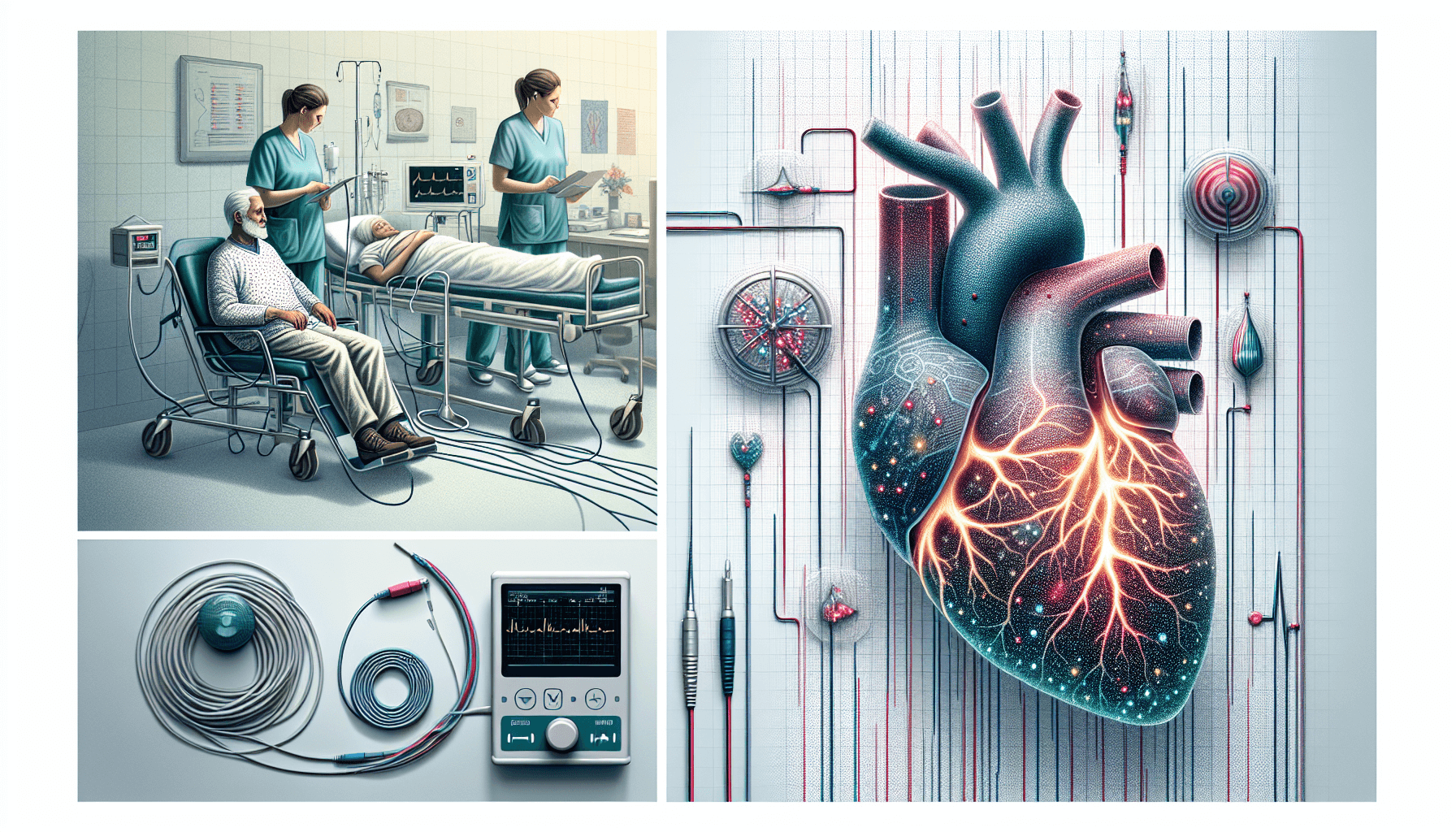
Although most episodes of heart palpitations are harmless, they can sometimes indicate a more serious condition. It’s crucial to know when to transition from self-help strategies to seeking medical help. If your palpitations are accompanied by symptoms such as:
-
chest pain
-
shortness of breath
-
unusual sweating
-
dizziness or lightheadedness
-
fainting
-
rapid or irregular heartbeat
-
severe fatigue
Or if you have a history of heart disease and notice frequent or worsening palpitations, these are red alerts that warrant a professional’s opinion, especially if you have a concerning past medical history.
For those fleeting palpitations that last only a few seconds, medical evaluation is typically not necessary. However, it’s better to err on the side of caution. When in doubt, consult with a healthcare provider. After all, staying attuned to your body’s signals and knowing when to act on them is part of maintaining good health.
Let’s delve deeper into understanding these significant risk factors and their warning signs.
Warning signs
Certain symptoms that accompany heart palpitations should never be ignored. If you experience any of the following, these are warning signs that your palpitations could be a symptom of a more significant health issue and they call for immediate medical attention:
-
Chest pain
-
Fainting
-
Severe shortness of breath
-
Severe dizziness
These other symptoms could indicate an emergency, especially if they’re new or symptoms occur that have gotten worse.
Frequent or worsening palpitations, particularly in individuals with known heart disease, may indicate a need for specialized heart-monitoring tests. It’s important to listen to your body and respond swiftly to these warning signs. Recognizing these signs can be life-saving, leading to timely and appropriate care.
Diagnostic tests and medical history review
A variety of medical technology tools are available for diagnosing heart palpitations. Some of these tools include:
-
Holter monitor: a device worn by the patient that continuously records the heart’s electrical activity, capturing any irregularities that might occur during daily activities.
-
Event recorders: designed for less frequent palpitations, these devices record heart activity only when abnormalities are detected.
-
Implantable loop recorders: similar to event recorders, these devices are implanted under the skin and record heart activity when abnormalities are detected.
-
Wearable heart monitors: the Apple Watch and many other smartwatches have an ECG feature that can record a snapshot of your heart when palpitations occur.
These tools help doctors diagnose and monitor heart palpitations more effectively.
Treatment options
If a more serious condition causes heart palpitations, various medical treatments might be needed to regulate the heart’s rhythm. Medications and vagal maneuvers are some frontline strategies to regulate heartbeat, while cardioversion—a procedure that restores a normal heart rhythm—might also be employed for sustained abnormal heart rhythm. For complex or persistent rhythm problems, treatments like catheter ablation or surgical procedures can offer a solution.
These medical interventions are tailored to individual needs and are determined based on the severity and type of heart condition present. It’s reassuring to know that medicine has advanced to provide a comprehensive care for heart health.
Summary
Navigating the waters of heart palpitations doesn’t have to be a solo voyage. With an understanding of the triggers and symptoms, coupled with lifestyle adjustments and natural remedies, you can learn to manage these peculiar heart rhythms. Remember, the key is a balanced approach—staying aware without becoming consumed by worry and making incremental changes to support your heart health.
If your palpitations are persistent or accompanied by concerning symptoms, don’t hesitate to seek medical help. The array of diagnostic tests and treatment options available today means that heart palpitations, even when serious, can be effectively managed. Let your heart beat to its own drum, but always dance to the tune of caution and awareness.
Frequently Asked Questions
What exactly are heart palpitations?
Heart palpitations are sensations where you might feel your heart is skipping a beat, pounding, fluttering, or beating irregularly. They can be experienced in your chest, throat, or neck and are often triggered by factors like stress, stimulants, or exercise.
Are heart palpitations dangerous?
Heart palpitations are usually not harmful, but if they are accompanied by symptoms like chest pain, shortness of breath, or unusual sweating, it’s important to seek medical advice.
Can lifestyle changes really stop heart palpitations?
Absolutely, making lifestyle changes such as managing stress, reducing caffeine and nicotine intake, regular exercise, and a healthy diet can indeed help stop heart palpitations and support heart health.
Are there natural remedies to manage palpitations?
Yes, staying hydrated, using herbal supplements like hawthorn berry extract, and practicing alternative therapies such as yoga and tai chi can help manage heart palpitations, but it’s crucial to consult with a healthcare provider before trying new remedies.
When should I use a heart monitor for palpitations?
You should use a heart monitor for palpitations if they are frequent, last longer than a few seconds, or if you have a history of heart disease. This will help track your heart’s activity and identify any irregularities that may require medical treatment.
The Best Atrial Fibrillation Book
Your Complete Guide To AFib: The Essential Manual For Every Patient With Atrial Fibrillation
$15.95 (as of May 5, 2025 11:52 GMT -06:00 - More infoProduct prices and availability are accurate as of the date/time indicated and are subject to change. Any price and availability information displayed on [relevant Amazon Site(s), as applicable] at the time of purchase will apply to the purchase of this product.) The A to Z guide on everything you need to know about atrial fibrillation. Written by AFib expert Dr. Percy Morales MD. Over 120 pages of essential information on medications, procedures, and lifestyles modifications for AFib. Easy to read for every patient.
Shop AFib Products on Amazon
KardiaMobile 6-Lead Personal EKG Monitor – Six Views of The Heart – Detects AFib and Irregular Arrhythmias – Instant Results in 30 Seconds – Works with Most Smartphones - FSA/HSA Eligible
13% Off
KardiaMobile 1-Lead Personal EKG Monitor – Record EKGs at Home – Detects AFib and Irregular Arrhythmias – Instant Results in 30 Seconds – Easy to Use – Works with Most Smartphones - FSA/HSA Eligible
$79.00 (as of May 5, 2025 12:10 GMT -06:00 - More infoProduct prices and availability are accurate as of the date/time indicated and are subject to change. Any price and availability information displayed on [relevant Amazon Site(s), as applicable] at the time of purchase will apply to the purchase of this product.)
Apple Watch Series 9 [GPS 41mm] Smartwatch with Storm Blue Aluminum Case with Silver Sport Band M/L. Fitness Tracker, Blood Oxygen & ECG Apps, Always-On Retina Display
(as of May 5, 2025 04:41 GMT -06:00 - More infoProduct prices and availability are accurate as of the date/time indicated and are subject to change. Any price and availability information displayed on [relevant Amazon Site(s), as applicable] at the time of purchase will apply to the purchase of this product.)
Fitbit Sense 2 Advanced Health and Fitness Smartwatch with Tools to Manage Stress and Sleep, ECG App, SpO2, 24/7 Heart Rate and GPS, Shadow Grey/Graphite, One Size (S & L Bands Included)
20% Off
OMRON 2-in-1 Upper Arm Blood Pressure Monitor & 1-Lead EKG Monitor - Clinically Validated Blood Pressure Arm Cuff & Machine - Use OMRON Connect App
19% Off
EMAY Portable ECG Monitor | Record ECG and Heart Rate Anytime Anywhere | Stand-Alone Device with LCD Screen and Storage | No Subscription Required
$109.00 (as of May 5, 2025 04:41 GMT -06:00 - More infoProduct prices and availability are accurate as of the date/time indicated and are subject to change. Any price and availability information displayed on [relevant Amazon Site(s), as applicable] at the time of purchase will apply to the purchase of this product.)
Samsung Galaxy Watch 6 44mm Bluetooth Smartwatch, Fitness Tracker, Personalized HR Zones, Advanced Sleep Coaching, Heart Monitor, BIA Sensor, Health Wellness Insights, Big Screen, US Version, Graphite
26% Off
Natural Rhythm Triple Calm Magnesium 150 mg - 120 Capsules – Magnesium Complex Compound Supplement with Magnesium Glycinate, Malate, and Taurate. Calming Blend for Promoting Rest and Relaxation.
$20.77 ($0.17 / Count) (as of May 5, 2025 12:17 GMT -06:00 - More infoProduct prices and availability are accurate as of the date/time indicated and are subject to change. Any price and availability information displayed on [relevant Amazon Site(s), as applicable] at the time of purchase will apply to the purchase of this product.)
Pure Encapsulations Magnesium (Glycinate) - Supplement to Support Stress Relief, Sleep, Heart Health, Nerves, Muscles, and Metabolism* - with Magnesium Glycinate - 180 Capsules
$44.60 ($0.25 / Count) (as of May 5, 2025 04:41 GMT -06:00 - More infoProduct prices and availability are accurate as of the date/time indicated and are subject to change. Any price and availability information displayed on [relevant Amazon Site(s), as applicable] at the time of purchase will apply to the purchase of this product.)
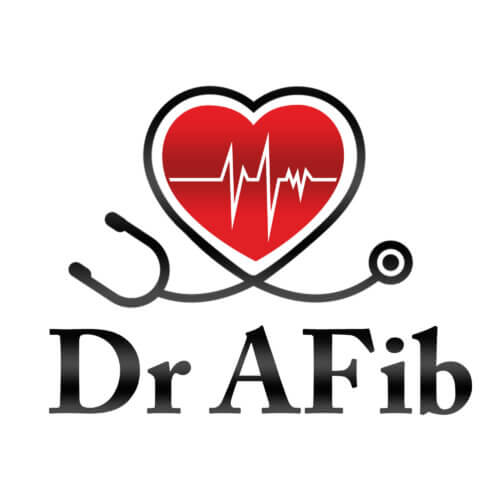
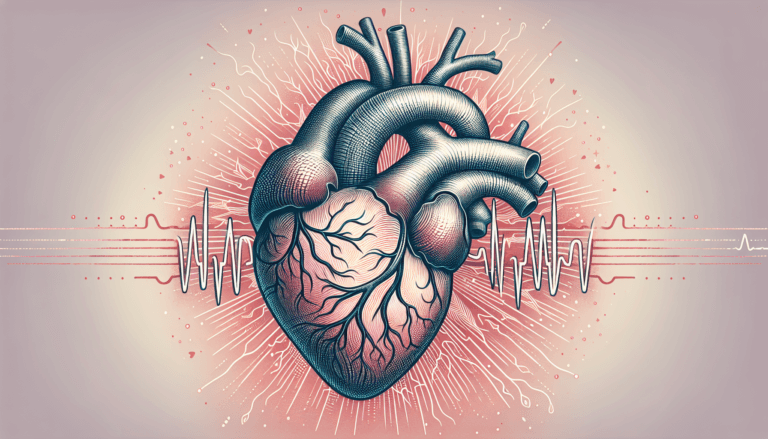













![Apple Watch Series 9 [GPS 41mm] Smartwatch with Storm Blue Aluminum Case with Silver Sport Band M/L. Fitness Tracker, Blood Oxygen & ECG Apps, Always-On Retina Display #1](https://m.media-amazon.com/images/I/311xwtp4mFL._SL100_.jpg)
![Apple Watch Series 9 [GPS 41mm] Smartwatch with Storm Blue Aluminum Case with Silver Sport Band M/L. Fitness Tracker, Blood Oxygen & ECG Apps, Always-On Retina Display #2](https://m.media-amazon.com/images/I/41j+8AaUGsL._SL100_.jpg)
![Apple Watch Series 9 [GPS 41mm] Smartwatch with Storm Blue Aluminum Case with Silver Sport Band M/L. Fitness Tracker, Blood Oxygen & ECG Apps, Always-On Retina Display #3](https://m.media-amazon.com/images/I/41jIyxZitnL._SL100_.jpg)
![Apple Watch Series 9 [GPS 41mm] Smartwatch with Storm Blue Aluminum Case with Silver Sport Band M/L. Fitness Tracker, Blood Oxygen & ECG Apps, Always-On Retina Display #4](https://m.media-amazon.com/images/I/41IpNJERjCL._SL100_.jpg)
![Apple Watch Series 9 [GPS 41mm] Smartwatch with Storm Blue Aluminum Case with Silver Sport Band M/L. Fitness Tracker, Blood Oxygen & ECG Apps, Always-On Retina Display #5](https://m.media-amazon.com/images/I/31o17yhfYpL._SL100_.jpg)



































